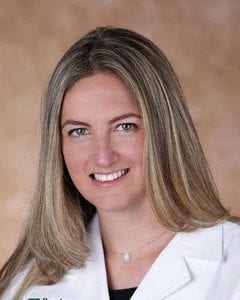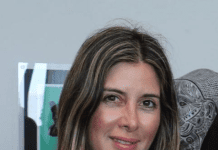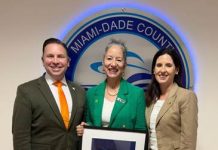
In many areas of the country, healthcare workers, like masks, are in short supply. As physicians, when we enter the medical profession, we are sworn to the Hippocratic Oath, an ethical principle, that above all else, we must “first do no harm”. We have been taught to weigh the benefit against the risk of any treatment, with the goal of only treating patients when the benefit outweighs that risk. In the face of the COVID-19 pandemic, we now need to take into consideration a whole new set of risks, not only to the patient, but to the physician and society as a whole.
As a breast surgical oncologist, within the last few weeks, I have had to alter the way I practice. I was asked to start cancelling my elective surgeries, including those patients with benign breast disease and those with genetic mutations who were supposed to have prophylactic surgery. Additionally, the Society of Surgical Oncology recently published general recommendations for delaying surgery in different scenarios for patients with cancer. In a majority of cases, breast cancer is not immediately life-threatening, and patients will be treated either with an oral medication that blocks estrogen or intravenous chemotherapy for several months before surgery is deemed safe and when operating rooms (ORs) are available. However, surgery will be offered immediately and upfront, when delays in treatment would significantly alter outcome and survival from the cancer.
The issue with operating on patients who do not have immediate life-threatening disease is 3-fold and brings us back to the principle of “first do no harm”:1. We risk exposing surgical patients to the hospital where there are sick patients and staff that could pass the virus along to an immunocompromised patient, 2.We are exposing the OR physicians and staff to a patient who may be an asymptomatic carrier of COVID-19. During intubation for anesthesia, respiratory particles may remain in the air for 3 hours and deposit on surfaces within the OR for days, 3. We are using up valuable resources, including ventilators, masks, gloves, gowns, nurses and doctors, all which may be urgently needed in the next few days-weeks during the response to this pandemic.
For these reasons, surgeons are not particularly eager to operate right now, and are putting themselves at risk each time they do. As a breast surgeon, I am being forced to make difficult decisions, but there are much more difficult decisions being made throughout other parts of the world and in this country by doctors in the intensive care unit (ICU) who are being forced to ration critical care resources and ventilators. A recent article in the New England Journal of Medicine outlined the principles of the ethics of caring for patients during the pandemic. Such guidelines can ensure that individual doctors do not need to decide on their own which patients receive life-saving care and which do not. The goal is to alleviate physician burden and to ensure equal treatment.
Healthcare workers are on the front lines (many without the proper protective gear) and are at the most risk for exposure and severe disease. I am worried about my friends, my family, and my colleagues. For the first time ever, doctors are universally afraid of going to work. We wear masks if we can find one, and are at times told masks aren’t necessary as they are a scarce resource, but we know better. We have traded in our nice, professional clothes for scrubs, because they don’t need dry cleaning and can be sterilized. We strip down in the garage before stepping in the house from work and try to escape hugs from the kids by darting to the shower first to disinfect any remaining germs. We carry our cell phones in ziplock bags while at the hospital so as not to bring fomites home with us and we re-use one single mask for as long as it will last. I see colleagues in New York, struggling to fill in the gaps of other doctors who are sick. They are overworked, exhausted, scared, and are worried that they will inevitably become infected too.
In these unprecedented times, a new mantra has emerged that appears to be equally as important, as “first do no harm” and that is, “in a pandemic, there is no emergency”. Most surgical procedures will be put on hold and routine follow up office visits will be rescheduled. Doctors are realizing the Hippocratic Oath applies to our own health as well. Resources are scarce, but amidst the rationing, we cannot afford to forgo masks and gloves, otherwise we risk becoming the next causality to this terrible disease. Along with masks, gloves, and ventilators, healthcare workers are the most valuable resource during this war.
References:





